Wednesday, August 2nd, 2017
by J. Anthony Allen
I spent the month of June on a residency aboard a ship in the Arctic. This was a residency primarily designed for visual artists, but I’ve never been one to turn down an exciting trip, so I decided to use the experience to work on a new String Quartet. Even though the ship did have the ability to let me charge my laptop, I decided to “go organic” on this trip: a few pads of staff paper and some nice new pencils. No computer, no piano.
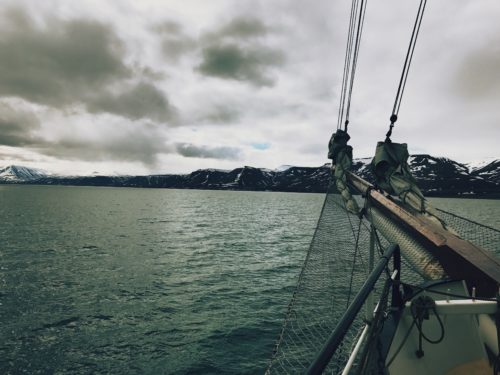
As much as I could go on and on about the Arctic and the geo-political issues that surround it, I would like to focus my attention here on my creative output while I was on the ship. In short: I haven’t been so productive since I was in grad school. I spent hours, even days, completely lost in my writing.
Since I’ve been back, I’ve found myself longing for that kind of focus. If only I could replicate it I could double, or even triple, my annual output. So, I’m dissecting the experience, and trying to reverse engineer the circumstances. What was it that spurred this burst of creativity and productivity? What was in the air that made me happy to sit for double-digit hours and work on a string quartet? And most importantly, what is the path that will lead me to getting lost in my work like this again?
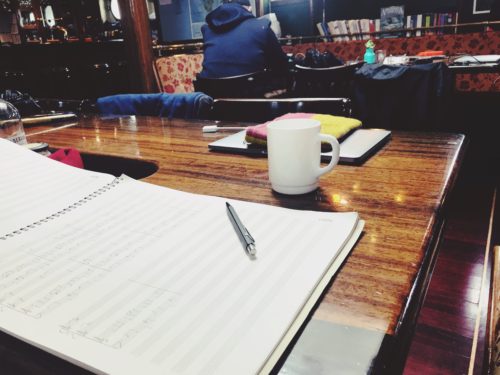
The recipe, as best I can tell, had three primary ingredients: The beauty of the environment, the timelessness of the season, and a total lack of connectivity to the outside world.
First, the environment: At any given moment, I could walk onto the deck of the ship and be awestruck by the landscape. While the location was constantly changing, every scene was the same in its untarnished beauty, its Martian terrain, and its slow and tragic sense of decay. Everything you need to be inspired.
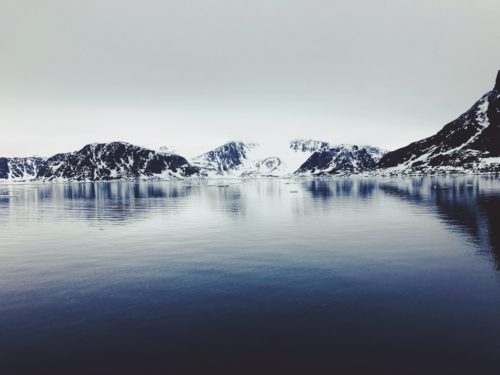
Second, the area is timeless. I don’t mean that it is unaffected by time. I mean that I was unaffected by time. In June, the sun is out all the time. It never dips, it never becomes dusk or dawn, it is a trillion-watt lightbulb with a broken switch. Setting aside the various levels of madness that this causes, it also causes a sense of no time happening at all. “Have I been sitting here for an hour, or 10 hours?”, “Is it noon or midnight?”, “Am I tired yet? Am I supposed to be tired yet?” All of these frequent thoughts contributed to the experience of being lost. When time becomes irrelevant, there is no beginning or end to your writing session.
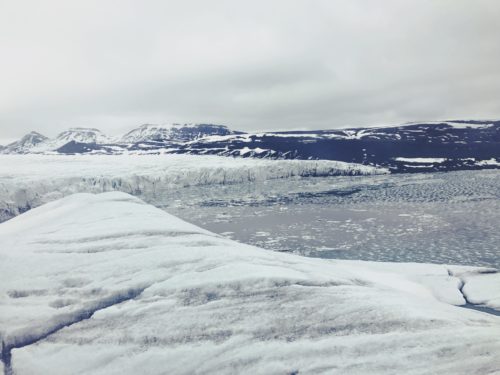
Third, and perhaps most importantly, I was disconnected.
No phone. No internet. No computer. No way for anyone to reach me, and no way for me to reach anyone (that wasn’t on the ship). Totally technologically lost.
As you can imagine, efforts to reproduce this kind of self-imposed isolation have been unsuccessful. I’ve decided that our modern world just isn’t meant for creative focus. At least, not without a fight. I’m not sure I’ll ever be able to reproduce it, but I can keep trying. I can keep fighting off the emails, fighting off the project updates, the papers to grade, the Facebook and Twitter posts, the Slack updates, the to-do lists, and all the other social norms that are expected of a high-functioning 21st-century human being, and I can simply try to focus.
Or, I could just get on a ship and point it north. Either way.
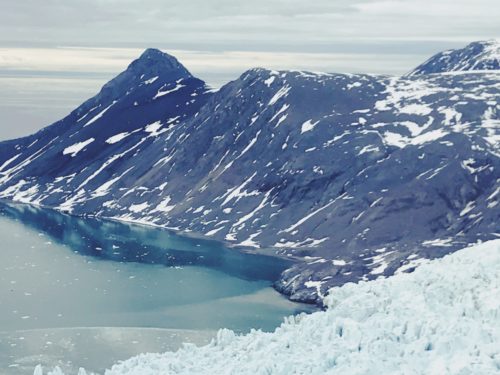
Photos by J. Anthony Allen.